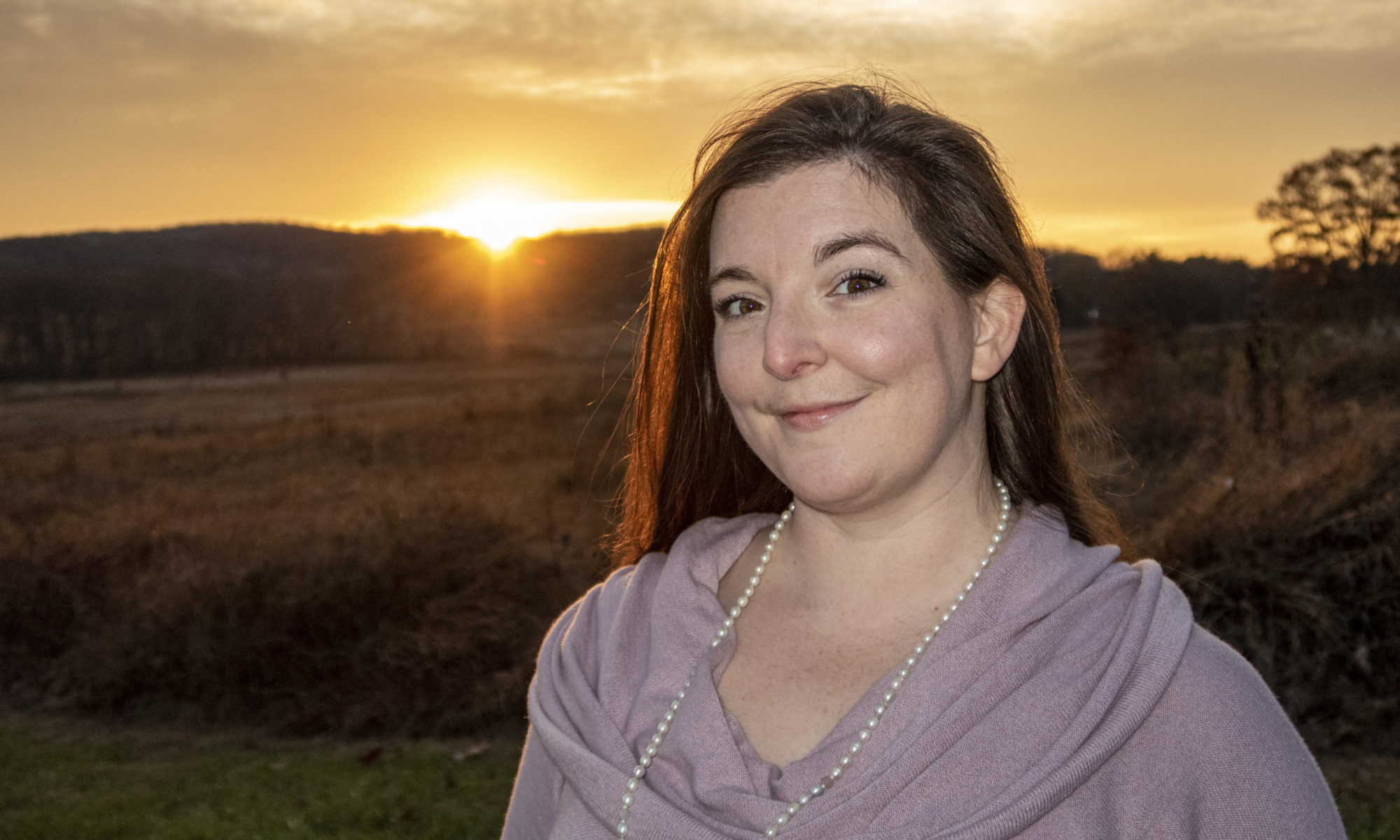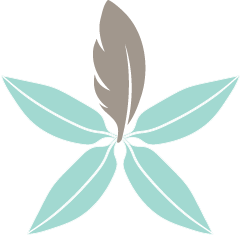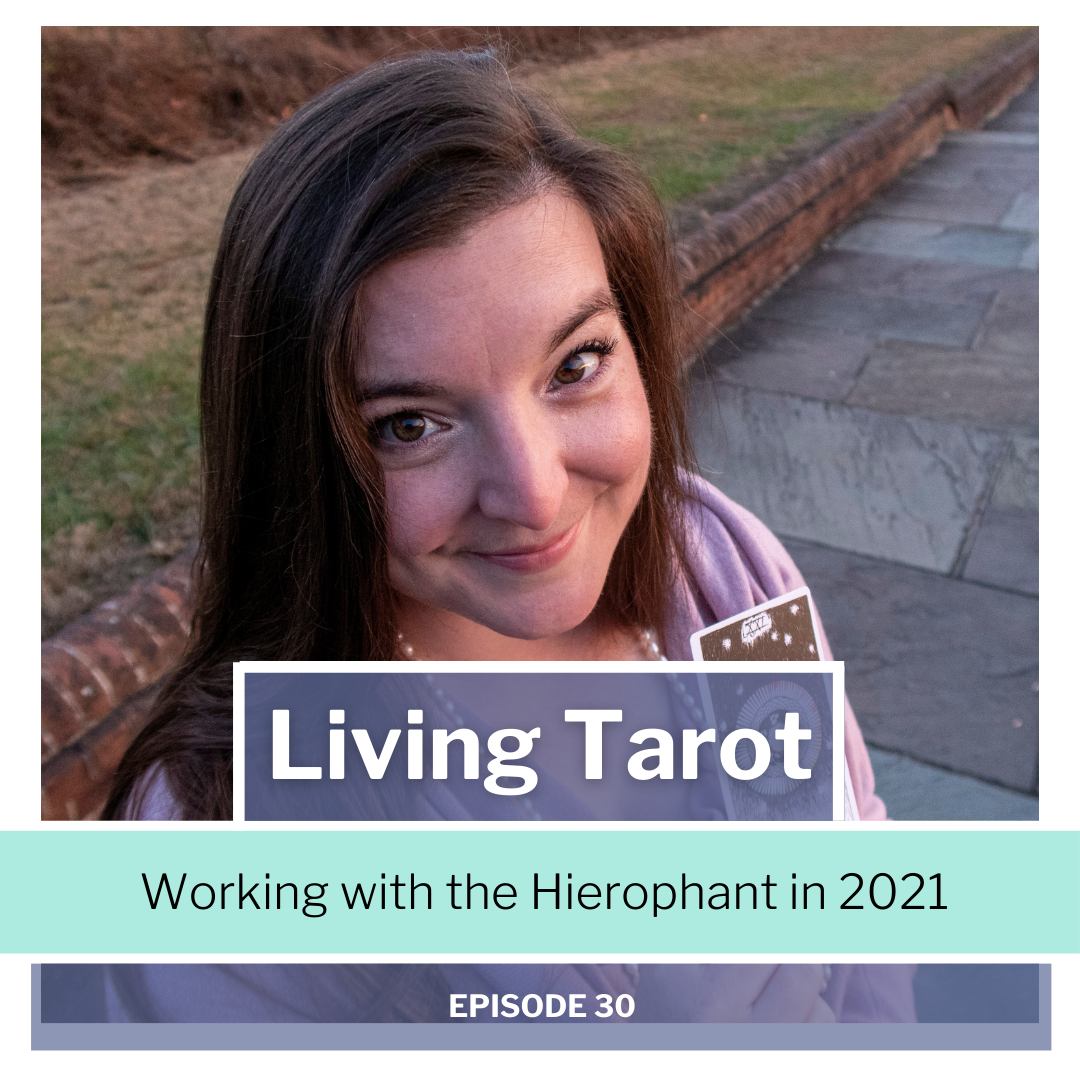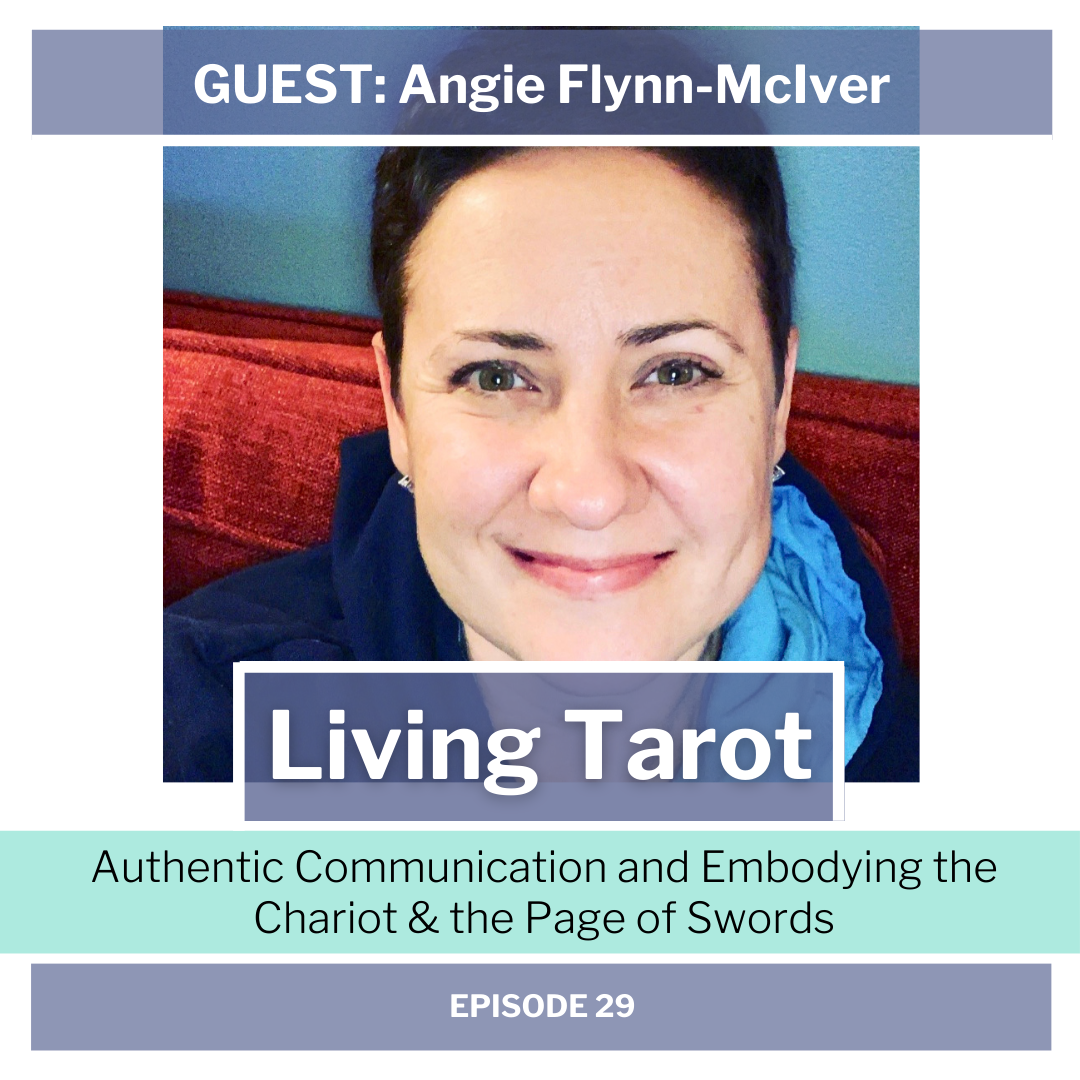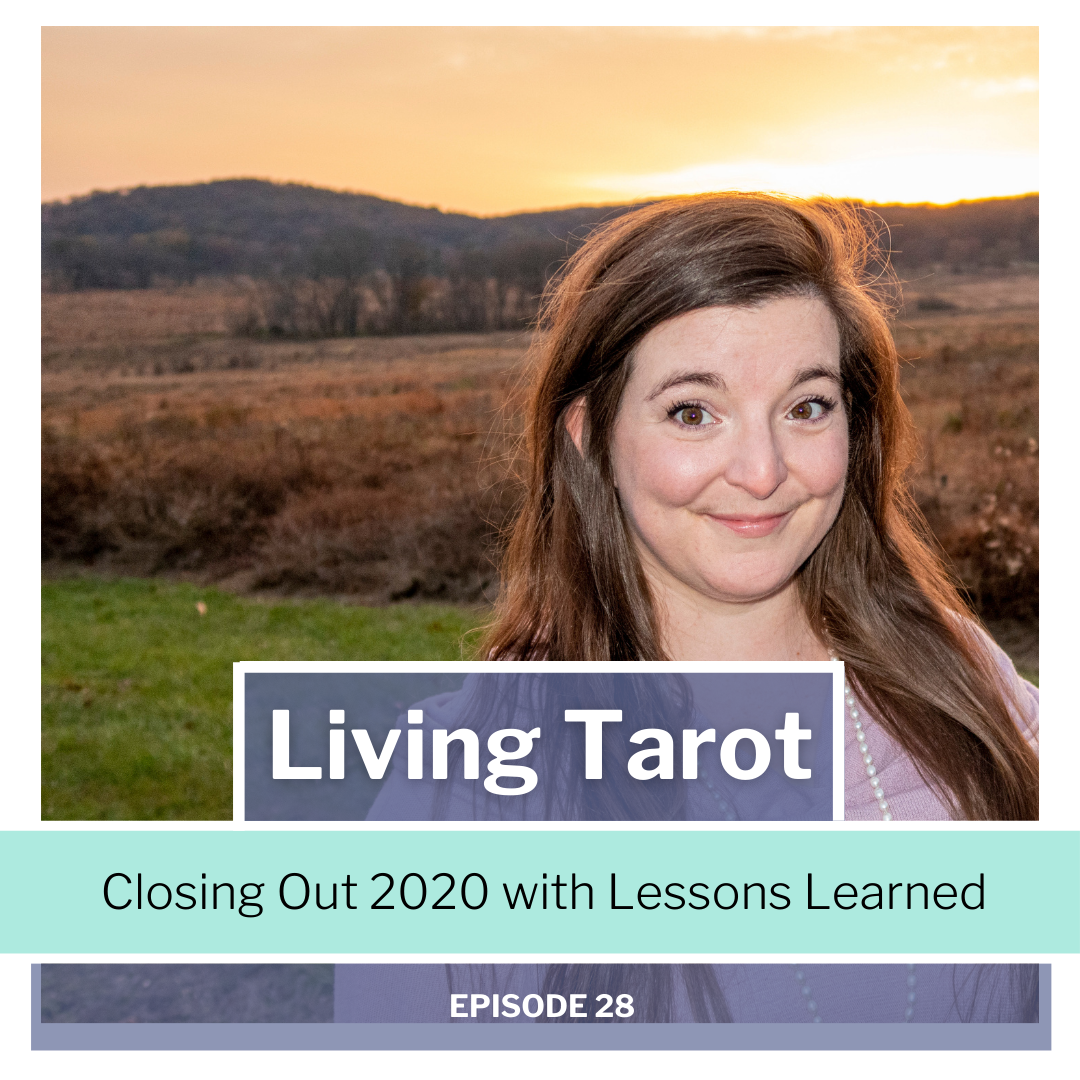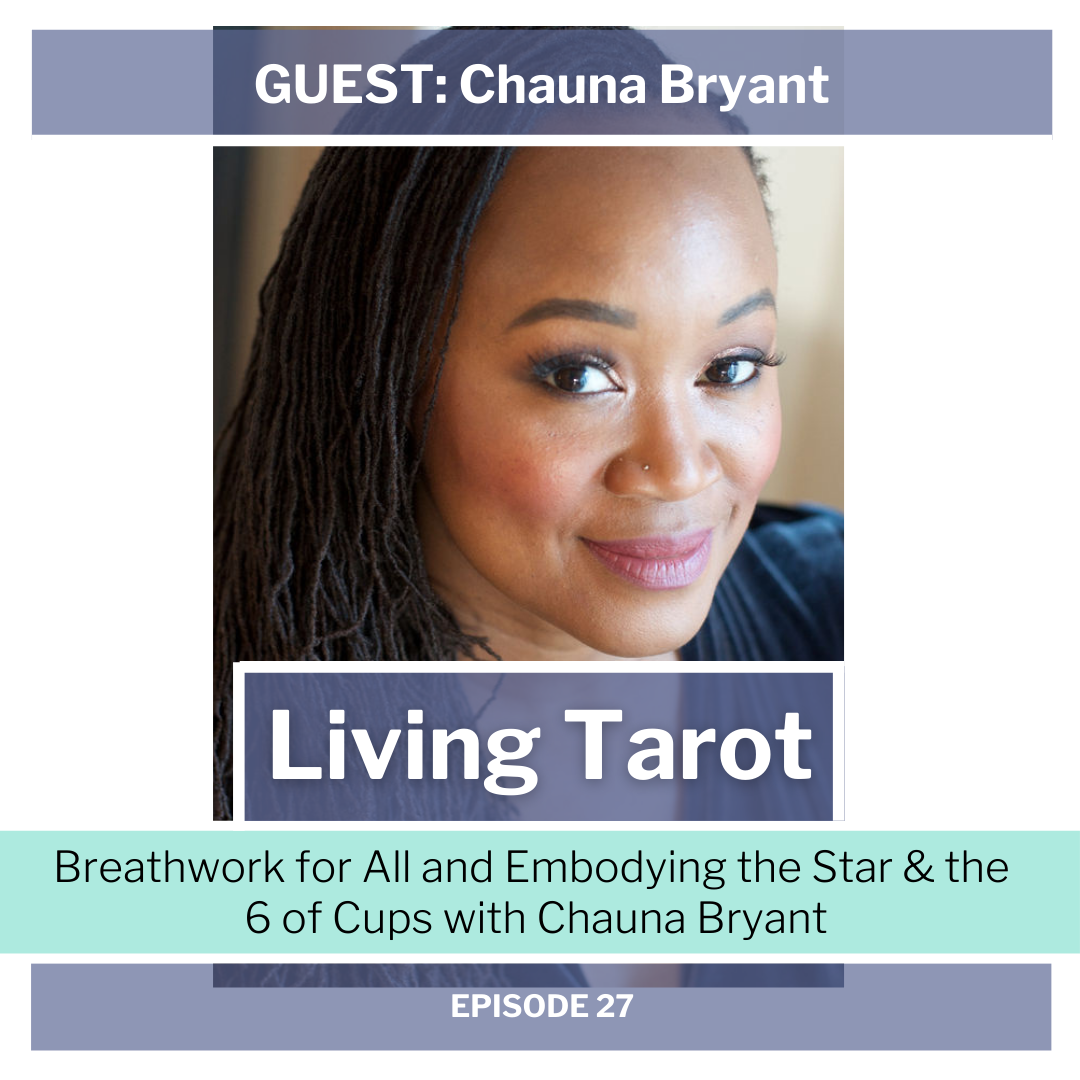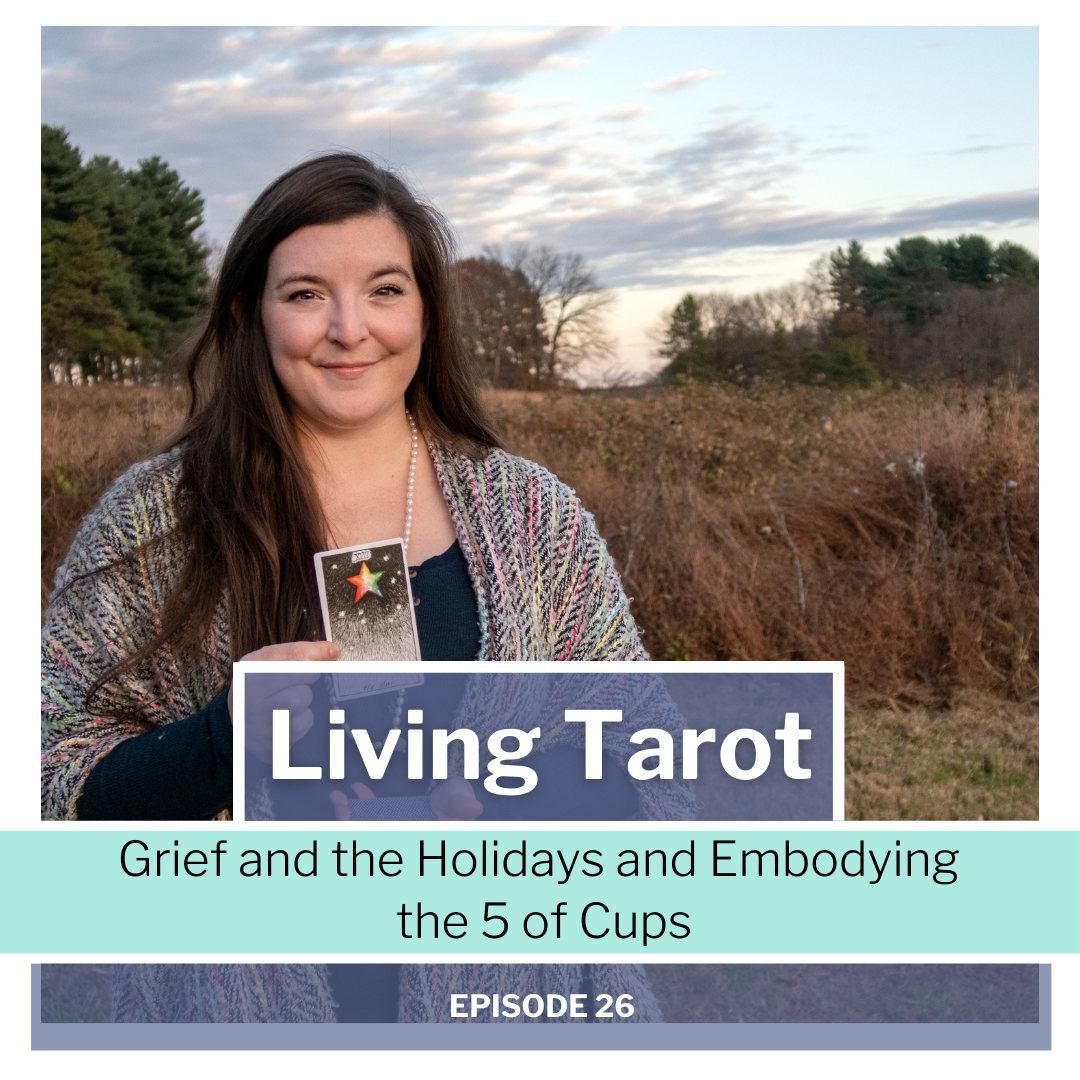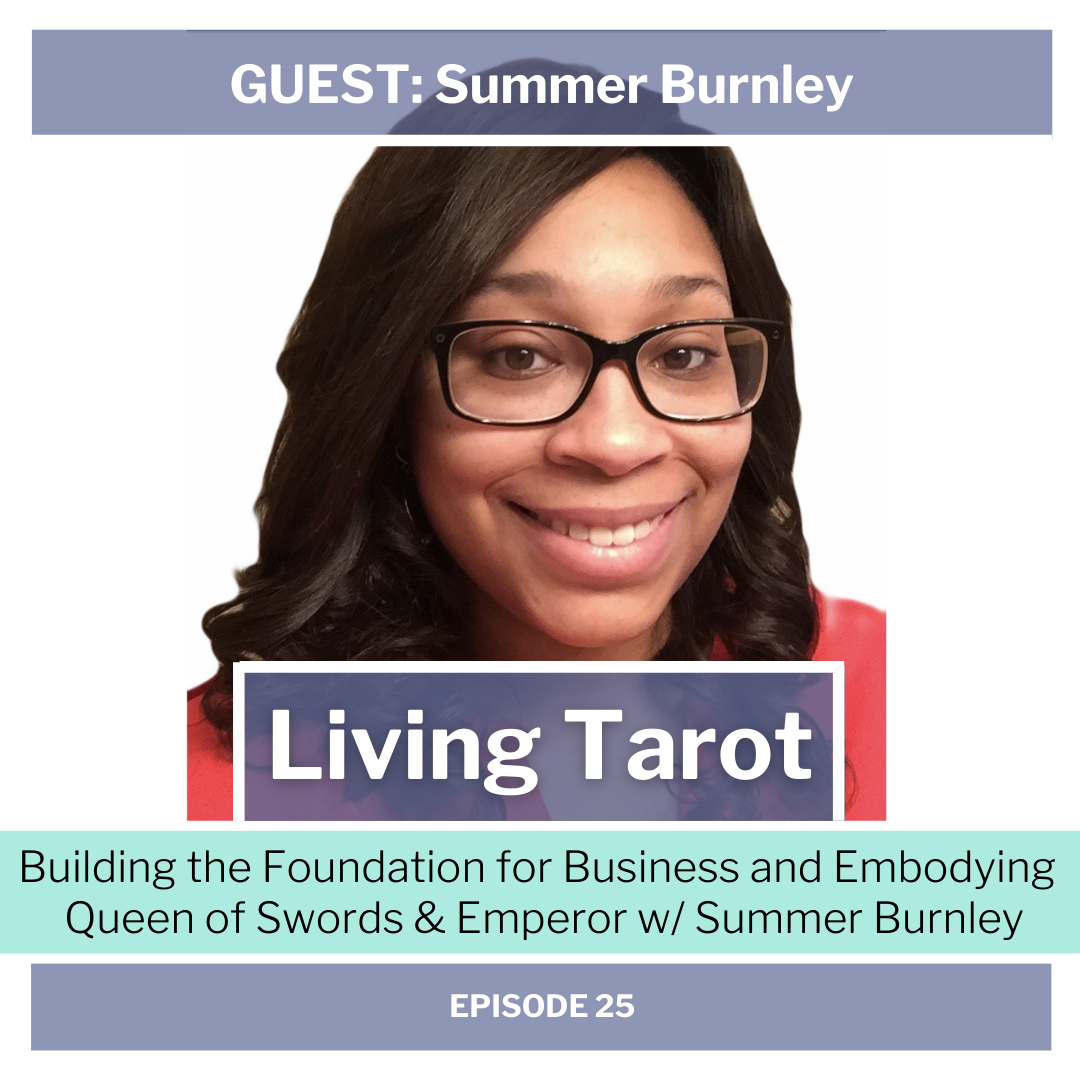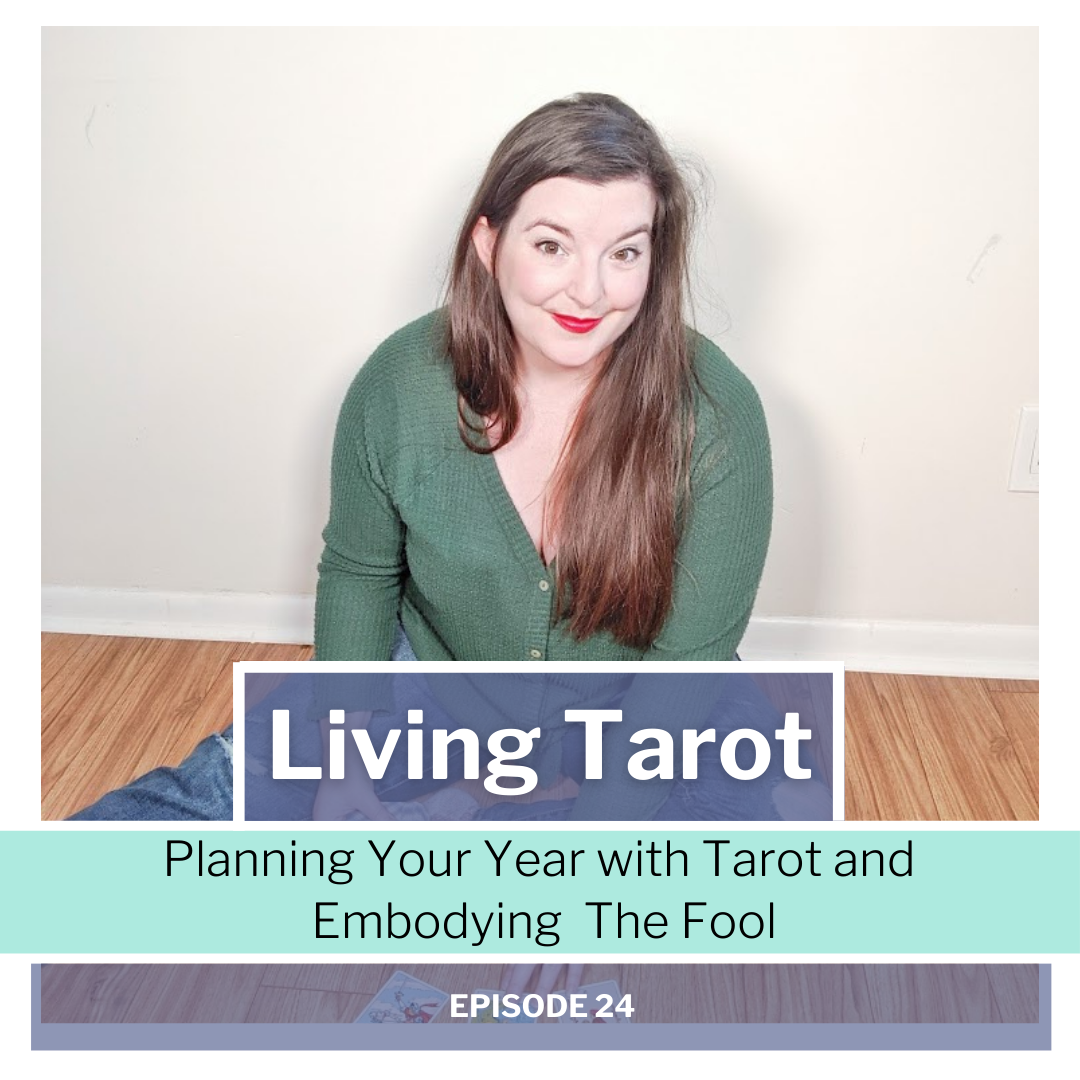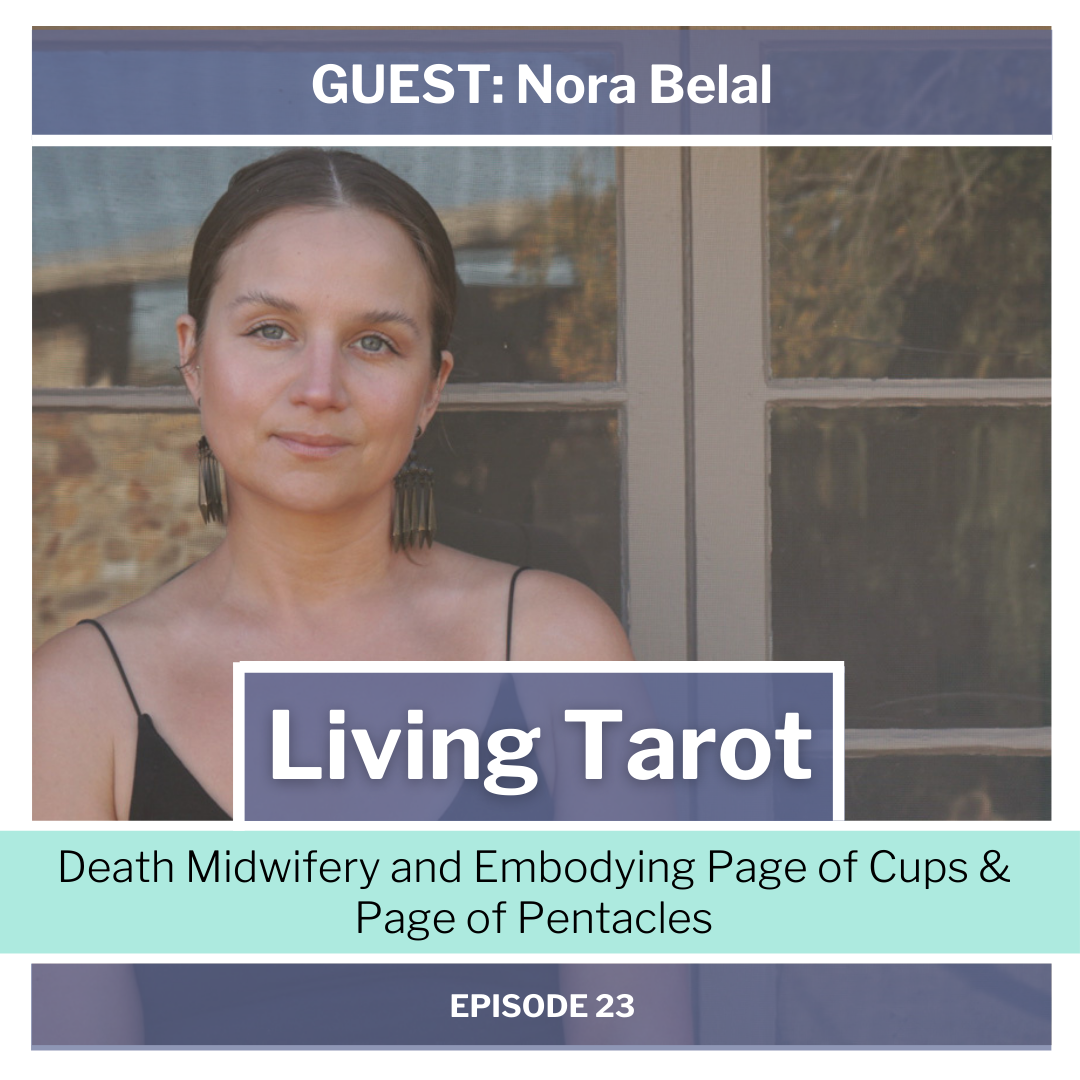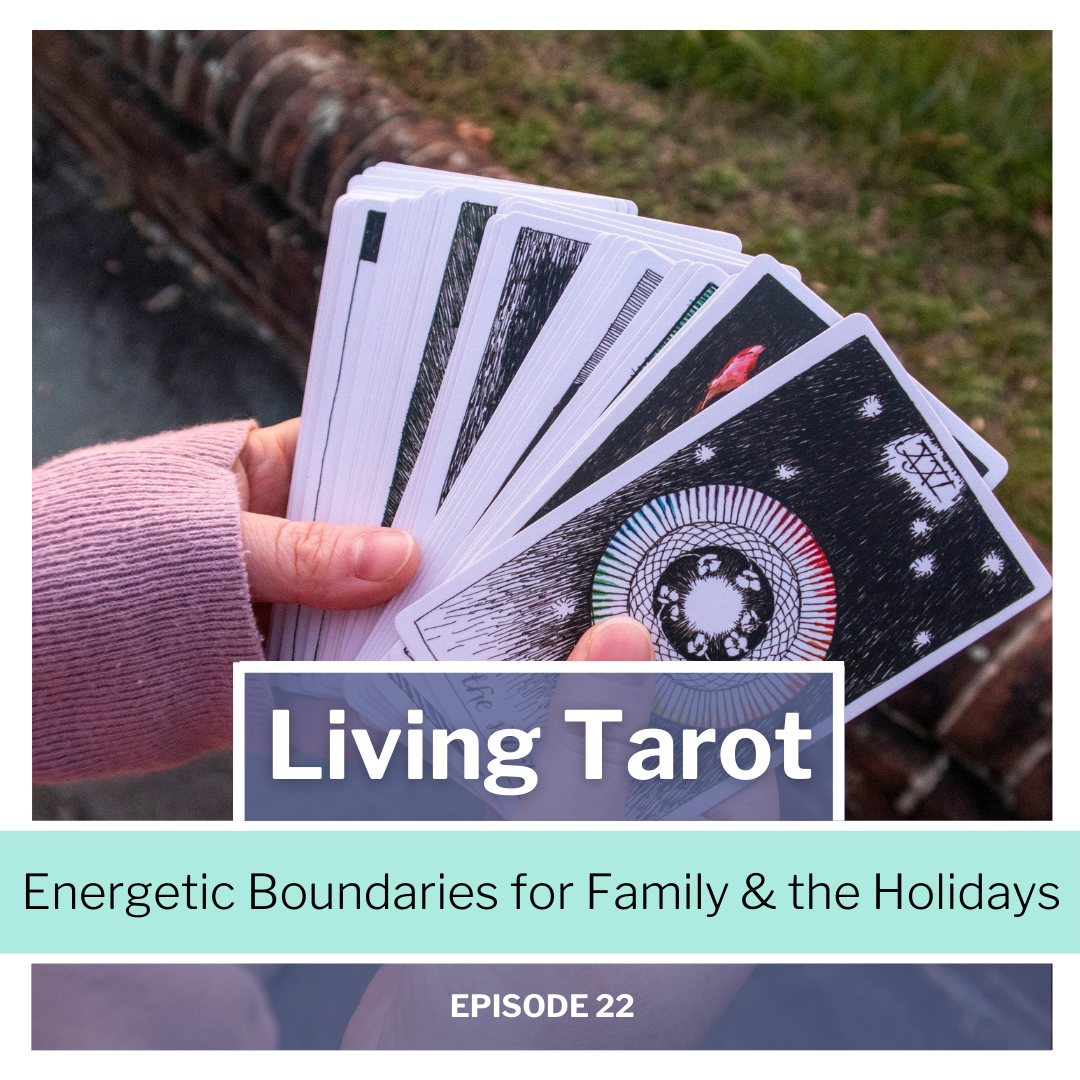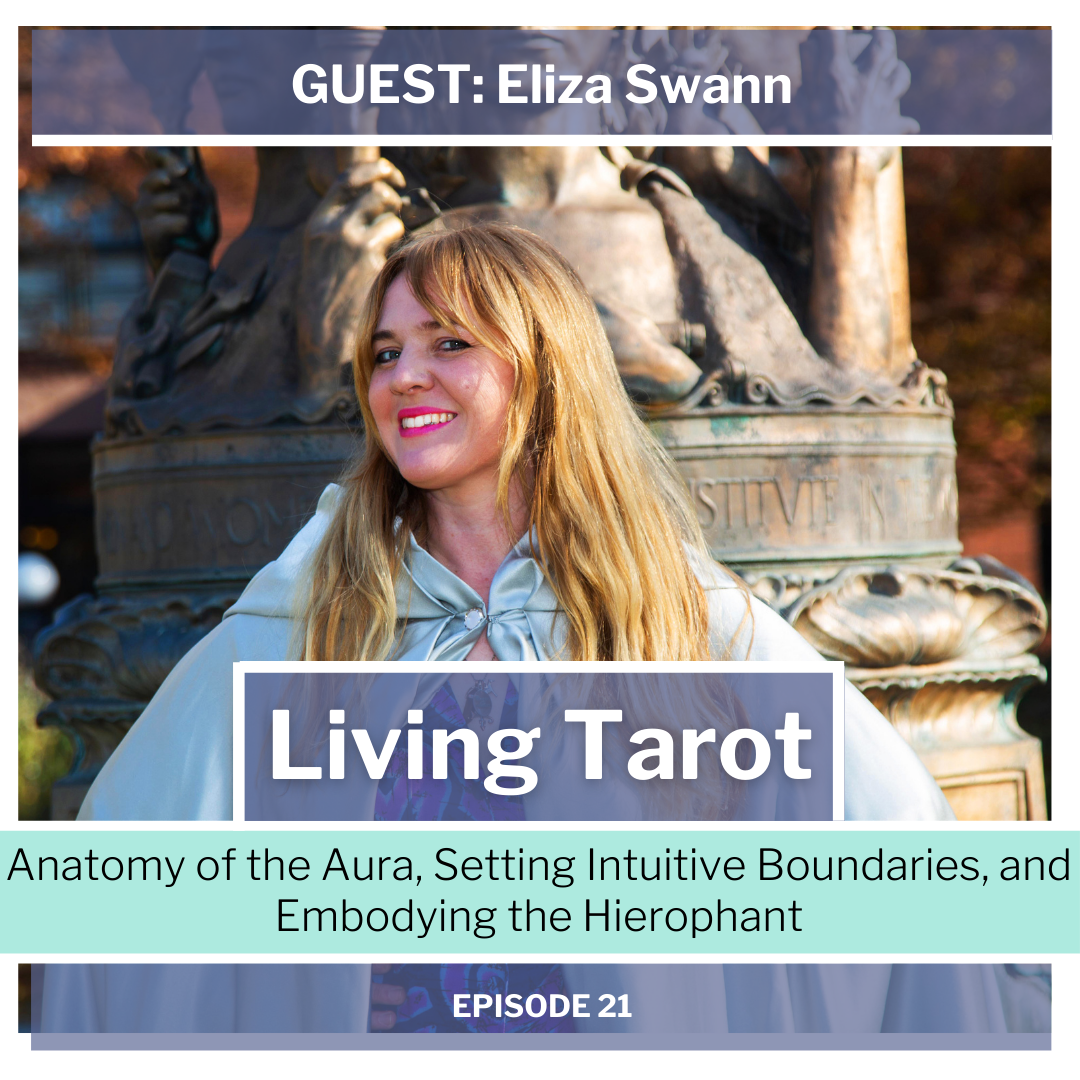What does it mean to be in a hierophant year? What does it mean to embody hierophant energy?
In this episode of Living Tarot I speak all about what it means to really embody the energy of the card of the year. The hierophant year is the opportunity for us to integrate the wisdom we’ve learned from the outside world with our own personal belief system. It requires us to be discerning about the places where we spend our money, time and energy and to pay close attention to what type of teachings we take as gospel.
Coming on the heels of an emperor year that has highlighted some issues with the sustainability of systems of oppression that are no longer working for the collective, the hierophant year of 2021 is really asking us to challenge the status quo. It is a year for trusting lessons that we have learned in connecting with our own intuition and realizing that we are our own best teacher.
Ultimately we all contain multitudes of wisdom yet we tend to search outside of ourselves for validation and understanding of that wisdom. This hierophant year Is an opportunity to learn from ourselves and to trust that and moments of great turmoil and transition that we need to have that connection to our own wisdom.
Connect with Sheila:
To get your Career Ahead Tarot Guide click here – https://starsagespirit.ck.page/products/diyyear-ahead-tarot-guide
To book a career tarot reading or distance energy healing session with Sheila click here – https://app.acuityscheduling.com/schedule.php?owner=18090641
To read more about Sheila’s offerings click here – https://www.starsagespirit.com/services/
Or on Instagram www.instagram.com/starsagespirit
Related Episodes: Episode 21 featuring Eliza Swann : https://www.starsagespirit.com/2020/11/18/anatomy-of-the-aura-setting-intuitive-boundaries-embodying-the-hierophant/
Transcript:
Sheila M 0:05
Welcome to Living Tarot. I’m your host Sheila Masterson. I’m a tarot reader and teacher, an energy healer and medium, and creator of Practical Tarot for Everyday Intuitives. Each week on this podcast, I’ll share my own experience of embracing and growing intuition and interview guests about how they heard the call of intuition, embraced the adventure, and embodied the tarot along the way. Join us and learn how you can stop second guessing, empower yourself through intuition, and live intentionally with the tarot.
Welcome back to Living Tarot. On today’s episode, I want to talk about our year 2021 and how that’s reflected in the Tarot. So with the Tarot using numerology, we say that each year is represented by a major arcana card. For 2021, that card is the hierophant, 2020 with an emperor year, and this is a very interesting transition that we’re going through right now, for a few different reasons. 2020 being a year all about the Emperor, it really relates to structures and historical, stable, rooted, ingrained belief system, government, you know, all of these different systems that we have set up in the countries around the world that are considered stable and structured and kind of unmoving. And as we transition into a hierophant year, we’re talking more about challenging some of those structures. And rather than seeking wisdom from great teachers, and history, and all of those things, we’re asking to take all of those deep systems that exist and have existed for an extremely long time, and make them personal. How are you your own best teacher? Yes, all of these outside resources exist Yes, you need to take into context, historical things. You need to take into context, the way the outside world works, but how do you personally want to be showing up and what can you learn and set up for yourself that nobody else can teach you? It’s something that you have to do alone. And I’ve been thinking about these two cards, with everything that has gone on over the last couple year… over the last year. Sorry, couple months is what I was trying to say. So it’s very interesting to me to see how 2020 in some ways was not at all what I expected for an emperor year and I think what a lot of people expected for an emperor a year. And in hindsight how, when you’re talking about moving from the Emperor into the Hierophant, it makes a lot of sense, because for so many of us, we have had to take a good hard look in 2020 over what systems were serving us, and what systems are not. So capitalism being the prevailing one in most of the Western world, we saw within the first couple weeks of Coronavirus, how quickly that system could be broken. You know, that is a system in the United States that we’ve relied on since… I mean, since the United States has it has existed and it has caused a lot of harm to a lot of different people, particularly indigenous and people of color. And we’ve built a country on the backs of oppressed people. And that has played out in capitalism ever since. So we’ve had these systems that rely on people working for a very low wage at the bottom and people making a very high wage at the top. And this isn’t about… this isn’t to be you know, if you’re like, oh God, are we really going to talk about politics right now? Yes, the answer is yes. And if you’re like, this is a spiritual podcast, or this is a tarot podcast, it shouldn’t be political. Yes, it should. Spirituality is political. Running a business is political. And being a human being in the world today is political. You can’t really avoid it. And if you think that you can avoid it, it’s because you are a person who’s operating from a place of privilege. And I understand I’m not judging you, I felt for a long time like I was a person who didn’t like to get involved in politics and just thought it was ridiculous. And it is. It’s ridiculous. Politics are ridiculous. But also, I have an obligation as a person who is white and a cis woman, and who operates from a place of a lot of privilege, both financially, racially, and also, I consider it to be a huge part of my responsibility as somebody who does healing work, and shows up in the world in that way to stand up for people who can’t stand up for themselves, because that is part of healing as a collective. So done with my rant. Anyway, what I do think is interesting about the shift is that this year, we’ve seen some of these systems that seemed like they were impossible to crumble, start to have some chips or all around, fall apart. And we’ve seen systems of oppression in the way that police forces operate, and systemic racism, and white supremacy, find their way into all of these different places, and into our collective psyche, in a way that permeates everything. And we would like to think that there are things that are separate and not political, but really they’re not, it’s in every day experiences. And when you are a person who thinks that they aren’t, it’s because they’re just not affecting you, it doesn’t mean that they’re not happening. So I do think it’s interesting, because this Emperor year of 2020, has brought so many people face to face with seeing these systems that need to be restructured in a way that provides stability for all people, not just people who have historically benefited from those systems. And as we slide, you know, in the last half of this year, moving towards a hierophant year, where it really is about coming into your personal power and taking, you know, wisdom that has been handed down. And being your own authority in so many ways. And I do think this is interesting, as you know, a lot of people have had to take, you know, a side gig full time this year, perhaps they’ve lost their job or been laid off, a lot of people are unemployed and needing to get really clear, a lot of people who have jobs, I mean, a lot of the clients I’ve been working with, over the past couple months have jobs, and just have realized that they’re in a job or a position or a company that’s not serving them, it’s not working for them anymore. And in so many ways this past year has been clarifying, because when we come face to face with our own mortality, and we come face to face with our own flaws, and we come face to face with the work that we’re doing, and the way that we’re showing up in the world, that can be a very abrupt and you know confounding experience where we realize that we don’t want to be spending our time either within that system, or within a job or a workplace or a business that no longer serves our needs. And we want to show up in a way that is more authentic and heartfelt. And the Hierophant is really about finding the ways to advocate for yourself, to take what you’ve learned and to question whether it serves you or whether you know, and this comes down in a lot of different ways. When I think about how it shows up for me in my business, you know, do I need another course, do I need another person to teach me about marketing or running a business or, you know, as a Sagittarius rising, I feel like I’m always looking for a new thing to learn and I’m always wanting to like buy a course or take a training or learn from this other person or read a million things about you know, read a book about all of this type of stuff. And sometimes that is helpful, and sometimes it is overload. And also, especially when it comes to marketing and being a heartfelt business owner or a heartfelt employee at a business, it’s so much about how much you want to buy into what you’ve learned, because there can be things that we learned that are really helpful and that we find to be validating or help us with our own experience of talking about our work and what we do and who we serve. And that’s amazing and wonderful, but there can also be stuff that’s just kind of a distraction and is keeping us from really doing what we want to do or really feeling like we have the authority to say that we want to do something a little bit different and to really part with the status quo, because that’s ultimately what the Hierophant energy is all about. It’s about how can you take these things, how can you take this marketing training that you learned and take like the some of the grimy stuff that you don’t like out of it, and really sell from a heart centered and authentic place? How can I talk about my work without always feeling like I’m like, selling it to people? Which, you know, that’s kind of the point. I am running a business, you know, but I also want to talk about it, not just to say how people can work with me and what they can do with me, but also like how they can empower themselves with Tarot. And that’s always what I’m coming back to and trying to reevaluate for myself. And the hierophant can really be a tool for empowerment and for forcing you to look at the ways that you really want to participate in some systems. So do you follow people who have not spoken up about racial injustice, and some of the horrific, horrific things that we have seen in this country this year and over, you know, the 400 years, that we have been oppressing people and beyond. And it’s very important to notice, you know, money talks, and especially when you’re a consumer or a business person, you need to be aware and mindful of where you are spending your money, and what that says about your beliefs, and who you are as a person, because we like to think that those things are unrelated, that we don’t have to agree with everybody that we spend our money on, but the truth is, that there are a lot of people who have a lot of privilege and have a responsibility because of that privilege to help out and who would not really suffer many long term consequences in doing so, but instead have taken the opportunity to use this time to just pretend like, we should all be love and light and happy and just sending love to each other and we’re all one. And yes, maybe that is true. But also, there are some significant injustices that exists within this world and pretending that they don’t exist, because you don’t want them to exist, doesn’t mean that they’re gone and it doesn’t make you an ethical investor, or you know, human being in society to just ignore that. And so, I really want you to think in this Hierophant year, when we’re talking about embodying the Hierophant, it’s about taking that sense of discernment to where we’re putting our money, where we’re putting our intention, who we are learning from, because inherently when we are learning from other people, their beliefs and their ideas aren’t getting filtered down to us whether we want them or not. And there are a lot of different scenarios where this shows up. And sometimes we can separate the work from the person and sometimes we can’t, and sometimes we just shouldn’t. So how can you pay attention to who you’re learning from who you’re treating like an authority on things this year, and how you can separate your own beliefs from that. Because even for me, you know, I could take a tarot training from another wonderful teacher, but if they say something that is not in alignment with what I believe, or how I think Tarot should work, I don’t need to start implementing that. I can just let that go. That’s not for me. And not all teachings are for everyone and I think that’s an important thing to recognize also, because just because you pay to learn from someone, or you have paid to learn from someone in the past, doesn’t mean that what they teach is still going to serve you. And I’ve seen a lot of this this year in particular, and I talked about it a little bit in my episode about running a business last year. But I do think it’s important because I’ve seen teachers and people who teach about running you know, authentic businesses and staying in that like heart space of selling and not burning yourself out and being really mindful of your needs, who are burning themselves out this year and and doing too much and not following their own teaching. So I encourage you as we head into this hierophant year to also pay attention to that. So the people that you learn from, that you consume from, that you listen to podcasts from or content from, this podcast, you know, pay attention to the ways that they are passing stuff down to you and how you are taking it, because in everything that I do on this podcast, these are tools that you are meant to try for yourself, and, you know, take what works for you and don’t take what doesn’t work for you. My word is not gospel, you know, and no teachers word is gospel. And you don’t have to do every single thing that they say. And quite frankly, as somebody who was raised Catholic, you don’t have to take gospel as gospel. Okay? Because that shits crazy. Some of it is great, and some of it has wonderful teachings, and some of it makes absolutely no sense. So you know, take what you can, and work with what you can and make it your own, which also brings us around to cultural appropriation. Do not do that. It is hard and I think there are a lot of things and my friend, Diana Rose Harper, who’s just an amazing astrologer, tarot reader, writer. She’s a beautiful writer. Oh, my gosh, I love everything she writes, and was talking about this, and how so many people who are just, you know, under the classification of white, are disconnected from their own heritage and that’s what tends to lead to this cultural appropriation. So we take practices from indigenous people, or we take practices from, you know, indigenous people in other countries, in America, practices from religions that we don’t participate in. We take words from yoga. We take, you know, all different things, and turn them into, like this fully white version of them that’s like prepackaged and, you know, capitalist and white supremacist and really not in touch with its roots and not meant to be practiced or taken from those people, not everything is available for your consumption if you are a white person, but one of the things that I think causes that, like Diana was saying, is the fact that a lot of white people are disconnected from their own heritage. And white supremacy has also really erased a lot of white culture, and kind of distilled it down into this bland culture-less thing that puts all of us at a disadvantage of not having that connection to our heritage, and historical practices from our lineage and ancestral teachings and things like that. And I do think that that’s really important. I come from a very Irish family. I’m second generation in this country, and we still have a lot of family in Ireland, but a lot of Irish culture was wiped out by colonization, and a lot of Irish indigenous practices are very difficult to learn about, very difficult to find and to unearth, but I’ve been working really hard at trying to find some of those things and trying to learn from teachers and use herbs and use, you know, herbs to smoke and herbs to clear the house and things like that, that are in my own lineage, and to learn about them and to do ancestral work and things like that, to be more in touch with that because the more we are in touch with our own sense of community and purpose, from a spiritual perspective, the less we feel a need to take somebody else’s. And frankly, like, it doesn’t really serve you to take somebody else’s medicine, you know, that’s not for you. And so that is a really important thing to pay attention to as we move into a hierophant year as well.
Hey there, I wanted to let you know that I’m currently accepting bookings for my career ahead tarot readings. These readings are designed to help you see the energy of the year ahead, to close out anything that’s been holding you back in the present year, and help you expand into your highest level in your career or business. Each reading happens to go through the year, month by month, talk about what you’ll be dealing with and how to best approach any challenges or hiccups that might come up in the year ahead. I have very limited bookings around the holidays. And I’m starting to get booked up into the new year as well. So if you are interested, please head on over to the show notes for this episode or check out my website at starsagespirit.com and if you’re more of a do it yourself kind of person, I’ve also created a DIY year ahead Tarot guide that will lead you through a very similar spread to what I do with my clients, and help you to define what you really want out of this year, and see any challenges and how to approach them through the year. It is an entirely personal reading. It is a very accessible price point. And you can use it over and over. So it’s not specific to next year and it’s not even specific to this time of year. You can use it for your relationship around your anniversary, you can use it on your business anniversary, or your birthday. The options are really endless. So if you are interested in purchasing your own DIY year ahead guide, you can do that by heading over to the show notes today.
And I feel like I’m getting a little bit lecture-y, but bear with me because the Hierophant is really about how do you want to do things. That’s ultimately the question that we’re coming up against this year. You don’t want to work 40 hours a week in your business. Cool. How many hours do you want to work? How much do you need to charge for those hours? What kind of work can you do outside of just one on one sessions that would help you generate more revenue so that you don’t have to show up 40 hours a week? You know, you want to be able to invest you know, 20% of what you make in your teaching. Okay, cool. And learning more. That’s amazing, perfect. So how can you do that? Maybe you need to get a part time job. Maybe you want to go back to the corporate world. But it’s really about you knowing what’s best for you. The Hierophant like reintroduces us to our own wisdom. And it’s very interesting, because in the line of the major arcana, you know, we start and we have the fool and the magician, the High Priestess, the Empress, the Emperor, and then the hierophant. So you know way back with the High Priestess, we’ve gotten in touch with our intuition. And then in the Emperor, we’ve like… we’ve come up a lot of ways against the logical rational world. And in the Hierophant, it’s like we’re trying to do both things. Like we’re trying to have that connection to our own sense of knowing, our own sense of purpose, and filter the logical learned outside world, the boundaries that we need to have, the boundaries that we need to improve, and the structures that we need to build for ourselves. So we’re looking at these outside structures that we’ve learned in the Emperor, which ones do work, which ones don’t work and in the hierophant, we’re trying to bring them into our lives. So one of the things that I think can be really helpful this year, as well, is looking at what structures you’ve put into place personally over the last year, and thinking about how you can make them more appropriate for you. So I’m going to give an example. So I had decided, like halfway through the year last year, that I needed to give up the way that I was trying to structure my time. I was still trying to, like work within like corporate hours. I was still trying to run my day, like corporate hours. And for the work that I’m doing now, that just does not work for me. There’s a lot more creativity in what I’m doing now, and that can be a little bit more fluid. And you know, I have clients that I’m working with now. And so I needed to restructure my time. So I restructured my hours to be later in the day because that’s when I feel most energetic and most connected. And I also shifted my schedule to be more flexible in general. And what that looks like is instead of saying, okay, from 9-10, I’m going to do this, from 10-11, I’m going to do this, I said okay, I have these projects that are all like one hour projects, when can I, you know, I can kind of fit them in whenever I have these time blocks and whenever I’m feeling particularly inspired or motivated, you know. Some projects are you know, Emperor type projects. I need to set up my acuity, my booking software. I need to make sure that all my forms are up to date so that people can book really easily and get their confirmations. I need to make sure all the structural things are workin. I need to reply to emails, you know, all of that stuff. And then there are other projects that might take a little bit more time like I created my DIY year head Tarot guide. And that was much more creative and I was doing meditating and channeling and recording meditations and writing channeled messages down and designing a spread. And that took a different quality of energy from me. And I needed to do it at a time when I was clear, and I wasn’t going to be get getting interrupted by things. And so now I will have a few things that I’m doing each week and very flexible, where I can fit them into my schedule. I have my client appointments on a couple of days and then I have a couple of days that are more business oriented, and I can kind of fit the projects in whenever I want. And that’s like a Hierophant thing, because I’m still using structure that I’ve learned from the Emperor and I’ve put these structures into place to help my business run really well, but I also have made it personal, because it does not work for me to just work eight hours a day, every day. Some days, I work 12 hours. Some days, I work two hours, you know, and that’s, for me as somebody who has some chronic health issues, that’s been very effective for me. And also, as somebody who has a lot of intuitive inspiration and creative inspiration, that also works really well for that because when I’m feeling inspired and energetic, I’m able to really get a lot of stuff done. And when I’m feeling very low energy and exhausted and maybe a little bit sick, I don’t feel like I have to push super hard, because I’ve already allowed that to flow in the other days. And so one of the things that I’m really working with this year, and that I’m going to talk about in a future episode is, you know, working with the moons and doing some… I hate the word manifestation, but doing some intention setting and creation, I guess I would say, with the moon, whether it’s the new moon or the full moon and using the Tarot to do that. And that’s been one of the things that has really helped me a lot this year. And in some ways that is the system, but it’s me making it personal for myself. So I hope that this hierophant year will be more of a blessing to you than our previous Emperor year was. And that you will really look at the ways that you deal with that type of energy and needing to be your own authority in your life and what that looks like for you because there’s always some stumbling blocks with it. And I think, you know, sometimes we push too hard. Sometimes we don’t push hard enough, and giving yourself the grace that you’re learning, and that it’s not about being perfect or about like nailing it immediately. The hierophant really about having that sense of, Okay, how can I discern for myself, what works for me here and what doesn’t and what messages am I getting around that? And, you know, the number that goes along with the Hierophant is five. And so if you’re into, you know, numerology, you can also look at the other fives of the Tarot. So, you know, the five of wands, the five of pentacles, the five of swords, and the five of cups, and each of them are about managing through these different conflicts, you know. You know, conflicts of passion, conflicts of, you know, authority, conflicts of emotion, grief, dealing with disappointment, especially after this past year, dealing with that disappointment and integrating that into your business, your life, your work, your relationships, because there will probably be some more subtle themes within this Hierophant year of each of those fives of the Tarot as well. You know, so if we think about five of wands, how do we come up against conflict in our passion and our intuition? How do we discern? How do we pay attention to our intuition and when are we ignoring it? You know, and when do we have a tendency to like, shut it down? I’m not listening to that right now. We all do it, you know, and I think, normalizing the conversation around that is also super important. So I do think that that’s important. And also at the five of wands, you know, you might think about how do I react when I feel like, my dreams are being threatened or when I feel like what I want to do is being threatened and like, what is my first reaction to that? And how can I learn from that? You know, how can I integrate that and prepare for that, so that when I’m disappointed, I am prepared for a certain reaction from myself and I am learning from myself. And this would be a great year to start a journaling practice if you don’t have one. And if you’re like, Oh my god, Sheila, please do not tell me to write shit down, I do not want to do that. I get it. I was super resistant. I still am really resistant sometimes. But if there’s anything that I’ve learned, it’s that it really holds me accountable to myself. And even better than that, I can see how much I’ve grown just over a couple of months, over a year, by keeping track of that, and in particular, in a Hierophant year, because we are talking about our own wisdom. Sometimes you don’t know that it’s wisdom in the moment, and you only know that it’s wisdom when you go back and reflect on it later. So I really would encourage you to start a journaling practice this year. And it doesn’t have to be long, you know, you don’t have to write your diary and then have like a couple pages of entries, but just, you know, write about what’s going on with you, you know, pull some cards, write about what’s coming up for you. And I had a friend ask me the other day, if that was like the right way to do it. And I was like, yeah, there’s no right way, you know, your way is the right way. And I think that’s really important to recognize. So really allowing yourself to, you know, maybe you want to read Tarot totally differently than I talk about it. Go at it, you know, go off, do your own thing. And I fully encourage that. I encourage that in my students as well. You know, this is… I’m giving you a baseline, but you can take it and do with it what you want, you know, and I think, you know, there’s no right way to capture it, you know, maybe some days you just get up and you write about like what’s going on in your head and other days, you want to go fully into a spread and write about all the stuff that came up. Maybe your writing what comes up in your meditation. You know, there’s so many different ways to capture this. You can write about struggles that you’re having in your business. But I do really encourage you because this is a year of really trying to learn from your own experience, from your own desires, from your own sense of agency and authority, to do that this year. So I hope this helps you reflect and prepare for this Hierophant year. It’s going to be an interesting one for sure. And I’ll talk about over the next couple weeks, some other ways to use Tarot, to use your personal cards of the year to really plan some stuff out for yourself and to lean into that energy rather than you know, fighting against it like some of us have a tendency to do. That’s all I have for you for now. And remember that my year ahead Tarot guide is still available. That is a guide that you can use to really help you plan your year and like I said before, to really lean into the natural energy flow that you’re going to have for that year, to really lean into how you’re feeling and to give you some ideas of how to approach each energy, which personally for me, I find to be very helpful because I am an action oriented person and if you just tell me to do nothing, I’m not going to be able to just like do nothing and deal with some devil energy. You know, I need to see that devil energy and know how to approach it. And that can be really, really helpful. So that is available. It is a pretty accessibly priced offer. And it is available in the show notes right now. It’s a great time of year to do that and can really give you a baseline for setting expectations for the year. It’s a PDF workbook and also some guided meditations to lead you through closing out the past year and really embodying what you want for the new year. So that is available via the link in the show notes. And if you feel like you just need a little bit more clarity, you’re feeling like you’re in a rut with your career, your business, you’re really wanting to be intentional with how you approach this year and you feel like you need some assistance to do it, I still have the availability for career ahead tarot readings with me, or with a couple other readings I have with just like a career check-in or a rut-buster reading, which is a reading where we do both energy work and clearing and some past life healing and also do a tarot reading for your business. It’s a big session but it’s also really powerful for people who feel like they are in a rut or like they don’t quite know what they’re looking for or they’re feeling dissatisfied and they can’t really put their finger on why. I really say that’s like a cure for like dissatisfaction the rut-buster. So you can find the links to read about those services or to book those services in the show notes for today’s episode and obviously I would love to work with you if you feel like that would be helpful. And over the next couple months I will be working to make my Tarot course, Practical Tarot for Everyday Intuitives, available full time so you can access it whenever you want. You can start your own Tarot journey or improve your Tarot journey if you feel like you’ve been on a break or if you feel like you have read too much and you’re way too confused about how to read Tarot for yourself or you just have dabbled in the past. That will also be going live very soon so you can get on my email list and be the first to find out when that’s available. So that’s all I have for you this week. I will see you back here next week.
Thank you so much for listening to Living Tarot. If you loved today’s episode, please leave us a review and subscribe so that you never miss an episode. This helps us reach even more budding intuitives. Feel free to share on Instagram and tag me @starsagespirit and let me know what you learned, what surprised you, and what you’d like to hear even more of. As always, if you want to hear more about my courses, or book a reading with me, or for full episode show notes, you can head over to starsagespirit.com
